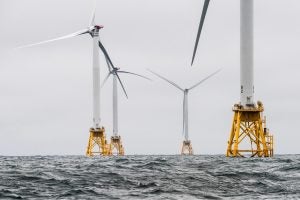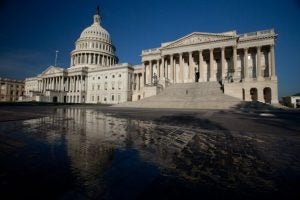 January 20, 2026
by Jackson Neme
Artificial Intelligence
Technology
January 20, 2026
by Jackson Neme
Artificial Intelligence
Technology
AI Data Centers may soon be moving to space, but that move may have significant environmental and consumer impacts without environmental impact assessments and regulations.
 November 5, 2025
by Caroline Lanteri
Energy
Legislation
Renewable Energy
November 5, 2025
by Caroline Lanteri
Energy
Legislation
Renewable Energy
From the Trump-II Energy Agenda to Permitting Reform in Congress, the Wind Energy Industry Has Much to Monitor—and to Take to Court.
 October 14, 2025
by Liza Williams
Artificial Intelligence
Technology
October 14, 2025
by Liza Williams
Artificial Intelligence
Technology
An overreliance on generative AI may threaten our collective potential to meaningfully address environmental problems by potentially slowing scientific progress and innovation, reducing the efficacy of our collaboration, and weakening support for environmental protection.
 October 6, 2025
by Theo Kaufman
Energy
Technology
October 6, 2025
by Theo Kaufman
Energy
Technology
As artificial intelligence grows and developers plan new data centers, residential consumers are footing the bill for increased electricity demands. Regulators must act to keep energy costs down and maintain the course on climate goals.
 September 30, 2025
by Mia Reines
Energy
Legislation
Renewable Energy
September 30, 2025
by Mia Reines
Energy
Legislation
Renewable Energy
Trump’s One Big Beautiful Bill Act aims to stifle renewables but may backfire spectacularly, forcing developers into a gold rush that accelerates clean energy deployment.
 April 22, 2025
by Daniel Hogg
Energy
Legislation
April 22, 2025
by Daniel Hogg
Energy
Legislation
Tariffs on U.S. produced goods are already disproportionately targeting right-leaning communities. Republican lawmakers may add to the price disruption by repealing the Inflation Reduction Act. This blog examines the political calculations currently facing Congressional Republicans as they try to undo Biden’s climate change legacy.
 February 27, 2025
by Sarah Bosworth
Energy
Natural Resources
Renewable Energy
February 27, 2025
by Sarah Bosworth
Energy
Natural Resources
Renewable Energy
Artificial intelligence has taken the world—and the energy sector—by storm. To prevent AI from delaying the decarbonization of the electric grid, Virginia legislators have adopted a statutory scheme that incentivizes nuclear power.
 November 15, 2024
by Omid Rahimdel
Energy
Natural Resources
November 15, 2024
by Omid Rahimdel
Energy
Natural Resources
Uranium mining near the Havasupai Reservation in Arizona could contaminate the aquifer that provides the Havasupai with their water supply, jeopardizing the health of the tribe.
 October 24, 2024
by Kathryn Blanco
Energy
Renewable Energy
State and Local
October 24, 2024
by Kathryn Blanco
Energy
Renewable Energy
State and Local
A bill before the D.C. Council, the Resilient and Energy Efficient Historic Properties Amendment Act, would amend the solar panel permitting process for residents in historic districts.
 October 22, 2024
by Gabriel Hearn-Desautels
Energy
Fossil Fuels
Litigation
Oil and Gas
Renewable Energy
October 22, 2024
by Gabriel Hearn-Desautels
Energy
Fossil Fuels
Litigation
Oil and Gas
Renewable Energy
A regional utility’s role in a $52B lawsuit could have significant implications for the future of climate litigation.











